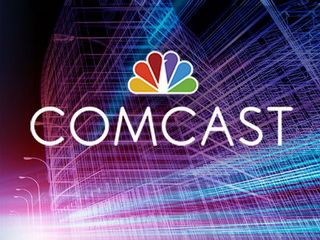Comcast Lashes Out at FCC Set-Top Proposal

Click here for more FCC set-top box news.
In Comcast’s turn to blast the FCC’s proposal to create new rules aimed at spurring a retail market for set-top boxes, the MSO said that, if enacted, such rules threaten to “stifle TV innovation.”
The proposal, led by FCC chairman Tom Wheeler, “would require satellite and cable TV providers to disaggregate or separate their services so that a few companies could repackage them as their own without negotiation for content rights like everybody else in the market does today,” Mark Hess Comcast’s SVP, office of the CTO, wrote Thursday in this blog post.
Hess had a front seat on FCC-appointed technical advisory committee formed a year ago to pursue potential downloadable successors to the CableCARD, and came up with multiple paths – an apps-based model favored by the cable industry, and another AllVid-style approach that discusses the idea of a "virtual headend."
Earlier today, Wheeler said assertions that the proposal is akin to an earlier proposed AllVid regime are incorrect, and that it would not create the need for a second box and did not affect MVPD programming deals or how operators tier, bundle or price video services.
Hess argued that Wheeler’s “proposal, like prior federal government technology mandates, would impose costs on consumers, adversely impact the creation of high-quality content, and chill innovation. It also flies in the face of the rapid changes that are occurring in the marketplace and benefitting consumers.”
Hess also echoed the arguments already laid out by the cable industry, holding that the market for competitive video devices is proliferating without government meddling, citing the rise of OTT services from Netflix and Amazon, multichannel alternatives such as Sony’s PlayStation Vue and Dish Network’s Sling TV.
Multichannel Newsletter
The smarter way to stay on top of the multichannel video marketplace. Sign up below.
As proof of the impact of the current state of competition, Hess pointed to X1, Comcast’s next-gen, IP-capable video platform, noting that it supports apps for retail mobile devices.
“Given these exciting, pro-consumer marketplace developments, it is perplexing that the FCC is now considering a proposal that would impose new government technology mandates on satellite and cable TV providers with the purported goal of promoting device options for consumers,” he wrote.
Hess also argued that the FCC’s track record on tech mandates is “has been less than stellar,” citing examples such as the CableCARD, which failed to create a vibrant retail market for set-tops and cable-ready TVs, and a mandate for 1394 outputs in set-tops “even after it was clear that other outputs had won out in the marketplace.” The FCC scuttled 1394 "FireWire" interface requirements in cable HD set-tops in 2010, as long as the boxes provided alternative access to content over IP home networks.
